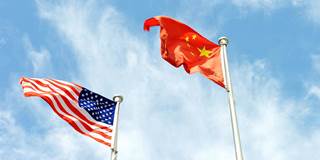In today’s deeply interconnected world, we need rules and institutions to govern markets and economic activity more than ever. Yet multilateralism is under increasing strain, and the lack of a clear and consistent means for assessing changing global power dynamics is not helping.
WASHINGTON, DC – It is often said that the unipolar world order, dominated by the United States, that emerged at the end of the Cold War has lately shifted to a “multipolar” arrangement, owing to the growing geopolitical “weight” of countries such as China, as well as many emerging economies. But the actual metrics by which we weigh global powers are typically discussed in only vague terms, if at all.

WASHINGTON, DC – It is often said that the unipolar world order, dominated by the United States, that emerged at the end of the Cold War has lately shifted to a “multipolar” arrangement, owing to the growing geopolitical “weight” of countries such as China, as well as many emerging economies. But the actual metrics by which we weigh global powers are typically discussed in only vague terms, if at all.